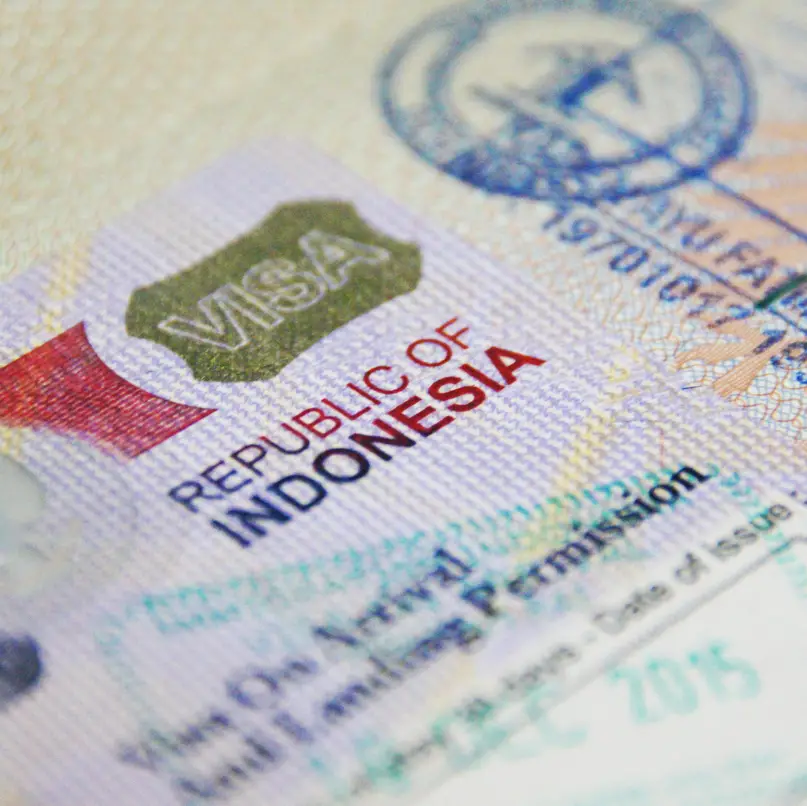BEFORE YOU GO TO THE BALI
Bali is an incredible island paradise that draws visitors from around the world. With its stunning beaches, lush jungles, exotic culture, and friendly locals, it’s no wonder Bali is a top destination for travellers.
But to make the most of your Bali vacation, it’s important to prepare and plan ahead. Use this comprehensive guide to get all the information you need before your trip to Bali.
What to Pack?
Packing for a trip to Bali can be tricky, as you’ll want clothes suitable for the heat and humidity while still respecting local customs. Here are some tips on what to bring:
- Light, breathable clothing – Shorts, tanks, and lightweight dresses are ideal. Bring clothes that dry quickly if they get wet.
- Swimwear – Bring your favourite swimsuit and cover-up. Many hotels and beaches have swimwear rules, so check ahead.
- Hat and sunglasses – The tropical sun is strong, so pack a wide-brimmed hat and UV-blocking sunglasses.
- Sandals – Flip flops or other comfortable, lightweight shoes are perfect for the heat.
- Sarong – Sarongs are versatile for wearing as skirts, beach cover-ups, etc.
- Long skirt or pants – For visiting temples, you’ll need to cover legs and shoulders. A lightweight long skirt or pants are ideal.
- Light sweater – For cool evenings or heavily air-conditioned spaces.
- Rain jacket – Bali’s rainy season means afternoon showers are common. A lightweight jacket can be a lifesaver.
- Mosquito repellent – Pack mosquito spray with DEET to prevent mosquito bites.
- Reusable water bottle – Stay hydrated and reduce plastic waste.
- Portable charger – For keeping devices charged on the go when electricity access is spotty.
- Snacks – Bring some snacks like granola bars or nuts for when hunger strikes between mealtimes.

Visa
Citizens from 9 ASEAN countries (Brunei, Cambodia, Laos, Malaysia, Myanmar, Philippines, Singapore, Thailand, Vietnam) can enter Bali visa-free for up to 30 days. This visa exemption cannot be extended.
Citizens of over 80 countries, including the US, UK, Australia, and most of Europe, can obtain a Visa on Arrival (VOA) at the airport in Bali. The VOA costs approximately $33 USD, is valid for 30 days, and can be extended once for another 30 days.
An e-VOA can be applied for online in advance which can save time at the airport.
For stays longer than 60 days, a Visitor Visa (B211A) must be obtained prior to travel. This visa is valid for 60 days and can be extended twice for 60 days each time, for a maximum stay of 180 days.
All visitors must have a passport valid for 6 months beyond the date of arrival in Indonesia.
Proof of onward travel and sufficient funds are also required.
Money
The Indonesian Rupiah (IDR) is the currency of Bali. It’s wise to exchange some money at Ngurah Rai Airport upon arrival for immediate needs like taxis.
ATMs are widespread, especially near tourist hotspots; however, alert your bank to your travel plans to avoid card issues.
For safety and better rates, use authorized money changers like Central Kuta Money Exchange. Larger venues accept Visa and Mastercard, often with a small fee, but smaller shops and local eateries are cash-only.
Tipping is appreciated for good service, usually around 10%, but check for included service charges.
Keep smaller bills handy for minor expenses and always safeguard your cash, preferably in a hotel safe.


Phone and Internet
In Bali, staying connected is straightforward with several phone and internet options. For the best rates, buy a local prepaid SIM card from providers such as Telkomsel or Indosat, available at the airport or local shops, starting at approximately 50,000 IDR with data packages from 100,000 IDR for 7GB. Ensure your phone is unlocked and register the SIM with your passport.
Alternatively, international SIM cards or eSIMs can be pre-ordered online, offering a hassle-free but pricier solution, with packages from around $10 USD for 5GB data.
Public WiFi is widely available at hospitality venues, though speeds vary and using a VPN for security is advisable. For consistent internet, consider turning your phone into a hotspot, just remember to opt for a larger data package.
Finally, check with your carrier for international roaming plans, but be wary of high costs. Having a mix of local SIM and public WiFi access is generally the most efficient way to stay connected.
Medical Requirements and Assistance
Before traveling to Bali, consult with your healthcare provider for recommended vaccinations like Tetanus, Hepatitis A and B, Typhoid, and Rabies at least 6-8 weeks in advance. Steer clear of stray animals to mitigate the risk of rabies and always use bottled water and well-cooked foods to prevent stomach ailments.
Bali is equipped with both public and private healthcare facilities. Notable hospitals include Sanglah Hospital in Denpasar and private options such as BIMC and Siloam, which offer high standards of care with English-speaking staff.
Ensure your travel insurance covers medical treatments and potential emergency evacuation. Be aware that medical costs can be high for foreigners, and upfront payment is often required.
In case of a medical emergency, dial 118 for an ambulance and contact your insurance provider as soon as possible for assistance. It’s also prudent to register with your country’s embassy upon arrival in Bali.

Prohibited Items and Practices
When visiting Bali, there are strict regulations regarding what you can bring into the country and how you should conduct yourself:
Items such as narcotics, certain prescription medications without proper documentation, firearms, ammunition, fireworks, pornographic materials, counterfeit goods, and endangered species are strictly prohibited.
It is also important to observe local customs and laws; for instance, public displays of affection, especially passionate ones, are frowned upon. Dressing modestly at temples and sacred sites is expected, and disrespectful behaviour, including climbing on structures at these sites, is prohibited.
Littering and polluting are taken very seriously, as is disturbing the peace of locals and tourists. Working in Bali requires proper permits, as does driving, and trading in illegal goods is strictly forbidden.
To ensure a trouble-free visit, it’s essential to familiarize yourself with these restrictions and practices, respecting Bali’s local laws and cultural norms.
What Not to Bring Back?
When you’re ready to leave Bali, it’s important to know what not to take back home to ensure you respect local laws and environmental guidelines:
- Fresh Fruits and Vegetables: These may carry diseases or pests and are usually prohibited by customs in your home country.
- Coral, Seashells, and Ocean Products: Taking these from the beaches can damage delicate marine ecosystems. Look for sustainable alternatives to remember your beach experiences.
- Animal Products: This includes ivory, products made from turtle shell, or any items that contribute to the endangerment of species.
- Medications: If you have prescription drugs, make sure to bring back only the quantity you need for personal use. Carrying medicines in large quantities can be illegal and lead to serious charges.
- Counterfeit Goods: Not only is it illegal to import fake brand-name items, but their production is also often associated with unethical labor practices.
- Religious Artifacts: Sacred statues or pieces from temples are part of the cultural heritage and should be left in their rightful place.
- Wildlife Products: Never bring back exotic pets or any parts of wild animals, as this can be harmful to the species and ecosystems.
It’s always best to opt for souvenirs that are sustainable and support local artisans, like handcrafted textiles, wood carvings, and locally produced delicacies. These items are not only legal to take home but also provide a more authentic memory of your visit to Bali.

